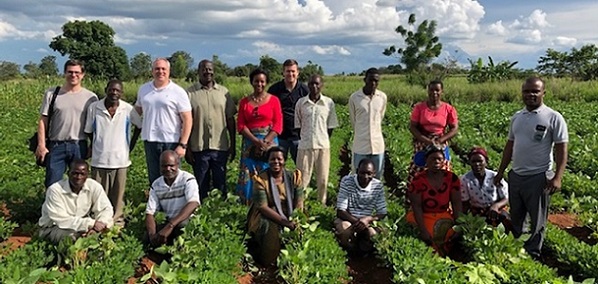I first landed in Malawi in mid-2002. At the time, I was working for Catholic Relief Services, responsible for overseeing a massive food aid distribution as part of a consortium of almost 20 NGOs providing food to nearly 9 million people. It was a humanitarian disaster ostensibly triggered by drought, compounded by the added misfortune of pervasive malnutrition (which also led to the acceleration of the AIDS crisis in the country). The food crisis affected all southern African countries and should have served as a lesson on how to prevent similar crises from ever-ravaging populations again. The lesson was not learned.
Fast forward 16 years. I returned to Malawi in early March to launch the Foundation for a Smoke-Free World’s Agricultural Transformation Initiative. Charged with a mandate to identify complementary livelihoods for smallholder tobacco farmers, we are challenged by the same economic and climatic conditions as any farmer in Malawi. The backdrop is a familiar one. Over the past 10 months, the current food crisis has absorbed $400 million dollars of in-kind food aid and cash to purchase food. The unfortunate truth is that Malawi has been subject to cyclical food crises over the past 2 decades and seems poised to continue this historic trend.
This time around there is a new narrative circling the edges of chronic food insecurity—a reduced global demand for tobacco. In 2015, 55% of Malawi’s $1.27 billion in exports came from tobacco. A few more startling statistics to put the picture in focus. While gross domestic products (GDP) growth in Malawi has been positive for the past several years, growth rates have fluctuated dramatically, and overall, GDP growth has been very slow. Notably, population growth has twice outpaced GDP growth, resulting in negative per capita GDP growth. According to the World Bank, the population growth rate in Malawi has been holding at 2.9% a year since 2013. This means a dangerous confluence of factors is incubating a potentially catastrophic situation—a rapidly expanding population faced with a decreasing source of much-needed foreign exchange, the livelihoods for millions of Malawians.
Given these facts, it is impossible to discuss complementary or alternate livelihoods for smallholder tobacco farmers without considering these alternatives as anything less than the development of a new source of economic growth. Many believe that “alternate livelihoods” merely means switching tobacco for another crop—maize, soya, or sorghum—or even moving into horticulture or growing other high-value crops. The reality is, those moves equate to short-term palliative measures in the absence of new markets absorbing any desired increases in production. Offering several million smallholder tobacco farmers an option of another crop or off-farm livelihood is not primarily an agronomic question—it is an economic one. Millions of well-meaning dollars and euros have been spent increasing productivity without lowering the cost of production by investing in the requisite logistical infrastructure, policy reform, land reform, or value chain infrastructure required to formalize a new sector of the agricultural economy and create a meaningful contributor to GDP. Over years, thousands of disparate and disconnected grants, bilateral aid programs and investments have been siloed, yet neatly fit within a myriad of strategies designed to help. As a result, we have become fascinated by achieving an excruciating degree of precision with no accuracy.

How will the Foundation’s approach be different? We are committed to investing in science and technology to further explore technical questions that can be answered through research and innovation, but if those advances aren’t supported by an environment to incubate and grow those ideas, products, or innovations—how can we deliver on their promise to transform? Therefore, we are approaching an economic question with an economic lens. The goal is to apply scientific advances as new market drivers and solve the most important problem of all—unlocking a new sector of the economy and put Malawian farmers on a trajectory to be globally competitive. For far too long, policy and grantmaking have been driven by meeting a need, not solving a problem. Breaking the bonds of food insecurity will only be done through establishing the fundamentals of a globally competitive agricultural sector. Twenty-five years ago, Brazil, Argentina, and South Korea were rounding errors on the global agricultural balance sheet. A decision was made to change that. We have the same opportunity.
We will continue an ongoing dialogue of our approach, providing key components of our strategy, as well as updates on real-time challenges. Einstein famously once said, “No problem can be solved from the same level of consciousness that created it.” If he’s correct, we’ll need to think differently. Please be part of this conversation.
© 2023 Foundation for a Smoke-Free World. All rights reserved.